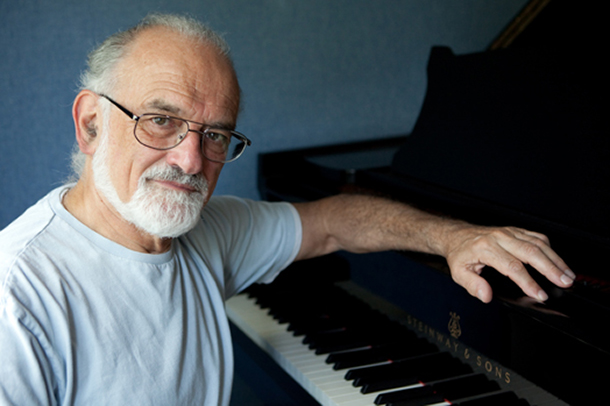BBC CAREER
Dick joined the BBC aged 18 and attained an engineering degree.
Took up the job of Studio Maintenance Engineer at Television Centre in 1965.
Promoted to Technical Instructor in the Production Training Department in 1969
where he remained for the next 32 years giving support to all the Training
Courses, travelling the world doing on-site courses at various TV Stations.
Ended up at Elstree (home of Eastenders & Holby City) where he continued as
Operations Manager until leaving the BBC in 2001.
MUSICAL CAREER
Dick started playing the piano at 5 years old, the double
bass at 12 and the church organ at 13. He studied at Trinity College of Music
attaining Grade 8 piano and LRAM organ. From 1962 - 2003 he has played
commercial and jazz gigs on Double Bass or Bass Guitar and has played classical
Double Bass in semi-pro orchestras (West London Sinfonia, Kingston Chamber
Orchestra, BBC Elstree Concert Band, Ealing Symphony Orchestra, Trinity
Orchestra Harrow, etc.) up to the present day. As an organist, he plays
regularly at four churches for services, weddings and funerals. This way he
keeps his hand in with his own performance work.
RECORDING CAREER
Dick’s father was a recording engineer for HMV in the 1930s
and it’s in the blood. Dick started recording at school from the age of 14,
bought his first 8-track system in 1979 to make backing tracks for his
commercial band and then the demand for his recording skills escalated. So
along with his demanding BBC job, he went 16 track analogue in 1985, and
digital in 1995. On leaving his BBC career in 2001, he made studio recording a
full-time business and had a custom-made facility built, which is capable of
48-track digital. The customers in the first 20 years of Dick’s recording life
all came from “word-of-mouth” recommendations, but after constant pestering by
musicians he has now put his information on the net.
Dick is a musician first and an engineer second. He
maintains that the music always comes
first during the recording process, not the technicality. The general comment
from musicians who have recorded at Red Gables is that the atmosphere is highly
conducive to quality performances. They have the confidence to know that if
there are any discrepancies in their playing, Dick will kindly suggest ways of
improving the finished product, whether through retakes or using the tricks of
the trade through the editing/mixing process.
|

